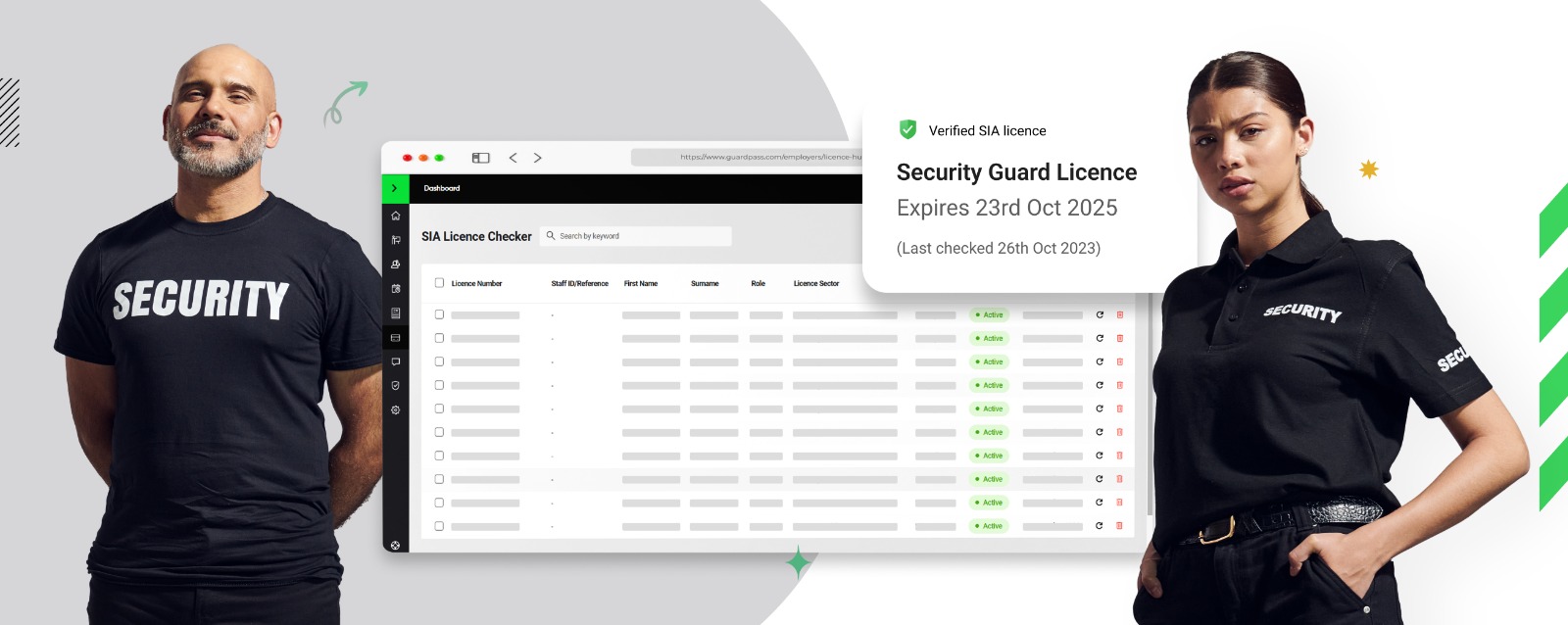Did you know a study found that 40% of 750 security workers showed signs of PTSD? The private security field has exploded over the past 50 years, and now in the UK alone, we have over 350,000 licensed security guards.
On the ground, the stats are quite telling.
Nearly 65% of security guards deal with verbal abuse monthly, and half of them face it weekly. Threats of violence? Yep, 43% of guards experience them each month, and a staggering 10% encounter threats daily.
And physical altercations? Over 30% have been physically attacked at least once a year, with almost 10% experiencing minor assaults monthly (source).
With such alarming statistics, it’s clear that looking after mental health in security is no longer optional. It’s a clear picture: the security sector is tough on its workers.
This blog is about flipping the script. We’re here to help leaders learn how to nurture their teams’ mental well-being and create a work environment where everyone can thrive.
Stresses of Security Work

Security work is not just a job you know; it’s a commitment to stand on the front lines, often in scenarios where decisions must be made in a blink under extreme pressure.
The odd hours mess with the toughest body clocks, and the mental load is just as heavy as the physical one, not to mention the physical strain and mental load it demands. Such stress can brew a perfect storm for mental health issues, including anxiety, depression, and severe burnout.
As a security employer, you’re the go-to person not just for instructions but for mental support.
Create an environment where empathy and proactive support are the norm. Recognising and tackling signs of mental strain early can mean the difference between success and failure of your security operations.
But how? Let’s discuss that.
Well-being Strategies for High-Stress Roles

✅ Communication: Start each shift by tearing down the barriers to open communication. Encourage open dialogues. Make it a norm to share concerns at regular team huddles—think of it as a daily debrief on well-being, not just work.
✅ Resources and Support:You wouldn’t head into a tough situation without the right equipment, right? The same goes for mental health in security. Why not include mental health support as part of your essential kit? Think about introducing on-site counsellors or creating ties with nearby mental health groups for stress-free, professional advice.
✅ Work-Life Balance: How about we make shift planning fair and square?Don’t you think it helps everyone juggle their personal commitments just as well as they handle their professional duties? A consistent work schedule means your security team can make plans, engage with their communities, and have a life outside the gates—knowing their work schedule won’t throw them a curveball.
✅ Employee Assistance Programmes (EAP): What’s your strategy for catching mental health issues before they become serious? An Employee Assistance Programme can be that early warning system—providing therapy, legal advice, and financial help. Think it might be time to install this essential tool in your arsenal?
✅ Physical Health Initiatives: What if your team could unwind and recharge through exercise? Offer gym memberships or set up team sports. It could be your answer. Imagine the boost in morale and decrease in stress—sounds beneficial, doesn’t it?
✅ Recognition and Reward Systems: Let’s make recognition more personal. Set up a system where good mental health practices are acknowledged. Perhaps a monthly ‘Mental Health Champion’ award to a staff member who goes above and beyond to support colleagues’ well-being.
✅ Stress Management Training: Equip your team with the tools to handle stress, not just to endure it. Offer training in mindfulness, meditation, or breathing techniques—skills that can help them stay centred amidst chaos.
✅ Team Building Activities: Why wait for the annual retreat to catch up and unwind? Integrate social outings, team dinners, or creative workshops into your monthly calendar. It could really boost morale and help your team gel. What fun activities could you see bringing your team together?
✅ Training for Awareness: What if training your team in mental health first aid could help prevent a crisis? Teach them how to spot and ease mental distress. It can be a game-changer in high-pressure roles. It’s time to invest in training that makes a real difference.
Always be updated about the new developments in mental health in security. Incorporate these insights into your business routine, not just to meet industry standards but to lead by example, set a standard, and genuinely caring for your team’s well-being.
So, we’ve shared a whole toolbox of ideas to help keep your security team’s mental health in check in their high stress roles.
Putting these into practice could really shake things up for the better at your workplace.
Now it’s your turn. What have you tried out? Any obstacles in getting mental health support off the ground? Drop us your stories, and let’s chat about them. Together, we can build a workplace that’s not only safer but happier.



